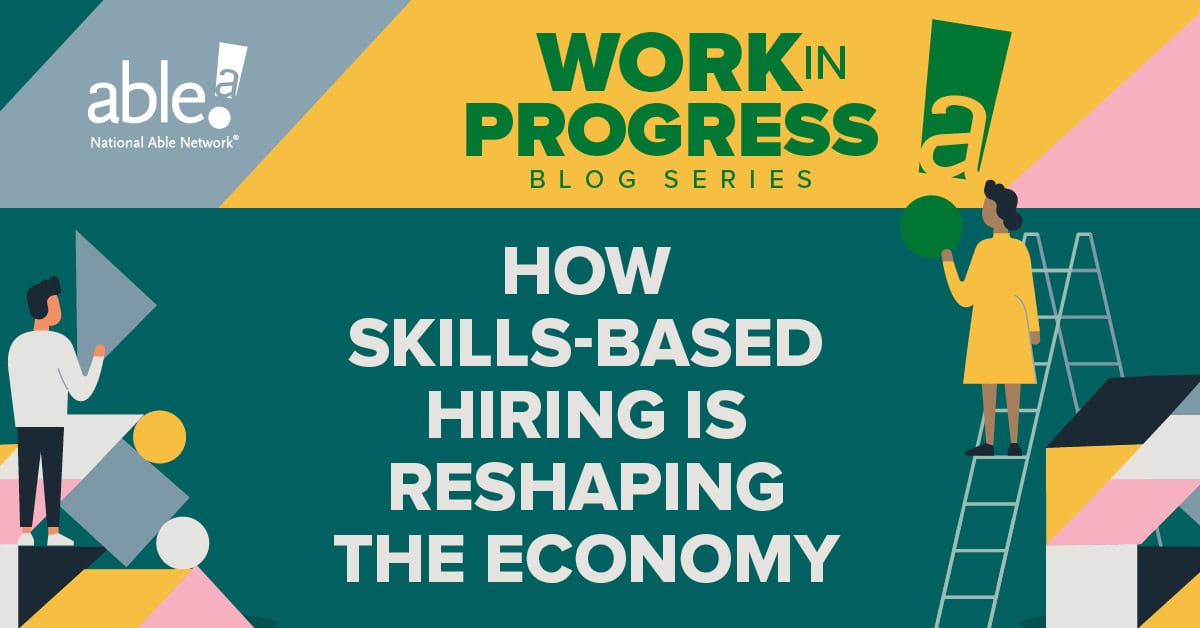Across the last two decades or so, employers have emphasized credential-based hiring practices. The refrain has become familiar: most – if not every – position within a company requires a college degree or some other credential as a prerequisite for being hired. This can even apply to entry level roles that do not require much training to perform.
In many cases, candidates without advanced degrees or specialized credentials do not even make it to the interview stage of the hiring process, which can lead to discouragement and negatively impact workforce participation rates.
However, this thinking is beginning to change. In the last few years employers have begun emphasizing skills-based hiring. This philosophy is what it sounds like: hiring for positions based on the skill(s) of the applicant, regardless of their educational background, and matching them to the requirements of the job.
This approach sidesteps educational requirements and gives employers the opportunity to train for jobs that require specific skillsets. It also opens doors for candidates who would have otherwise been closed out of promising employment opportunities.
The U.S. Chamber of Commerce, a commercial organization that represents the interests of businesses across the country, issued a policy report on this initiative last fall. The report states that “… learners, education, and employers share two goals: program completion and job placement. A skills-based hiring model can improve both of these outcomes.”
The Chamber also cites data complied by LinkedIn that shows that companies “who make the shift [to skills-based hiring] are 60% more likely to make a successful hire” than companies that don’t make the switch.
How can job seekers take advantage of this shifting philosophy and find employment that matches their skillset?
One way is to enroll in workforce programs that upskill or reskill individuals and helps them find employment. For example, programs funded by the Workforce Innovation and Opportunity Act (WIOA) are a go-to resource for workers in the public workforce system. National Able Network, Inc. (Able) is a leader in WIOA programming and has assisted thousands of job seekers in finding employment that matches the skills they bring to the table.
Interested individuals can also enroll in a trade school, apprenticeship, or specialized education program, such as Able’s in-house IT Career Lab program. IT Career Lab prepares students to earn several industry-recognized credentials that can be used as a foundation for a new job or career. And through Able’s network of employer partners, program graduates often enter the workforce in a full-time position.
The emphasis on skills-based hiring is only just beginning, but it is primed to have a significant impact on employers and workers from every background.

